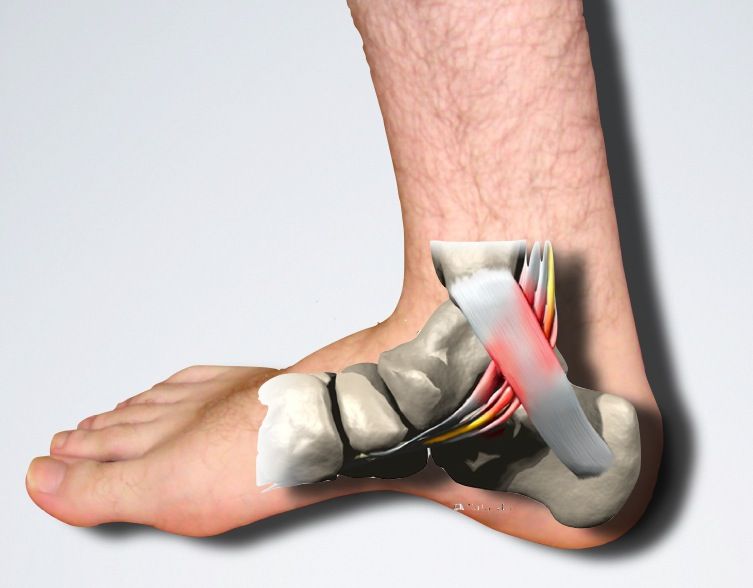Nerve Entrapment syndromes

A nerve is called entrapped when it losses its mobility and flexibility because of compression by the surrounding tissues.
Causes of Nerve compression syndrome
- Repetitive movement related injuries
- Sprains and fractures following trauma
- Diabetes Mellitus
- Autoimmune disorders like Rheumatoid arthritis
- Thyroid dysfunction
- High blood pressure
- Tumours and cysts
- Obesity
Patho-physiology of Nerve Compression syndrome:
Because of the Nerve entrapment, the blood flow to the nerves is reduced which causes swelling in the nerves. This further causes damage to the Myelin sheath layer of the nerves which is responsible for insulation and effective signal transmission. Thus this demyelinating process greatly impacts the nerves ability to send and receive signals which produces symptoms like tingling, numbness and pain.
The most common nerves around the ankle joint which are responsible for causing Entrapment syndrome and thus, Ankle pain are:
JEEVISHA protocol for management of Nerve entrapment syndrome
Patients presenting to us with symptoms of nerve entrapment syndrome are first evaluated extensively to determine the cause of the compression i.e. structural or medical. This is done by Clinical examination and Ultrasound examination of the nerve at our centre itself. Some patients may require advanced tests like Nerve conduction studies and MRI neurography.
- Medications: In the initial course of the management of this condition, patients may be prescribed some Neuropathic medications to reduce the nerve related pain. Some other medications may be prescribed depending on the condition of the patient, which is individualized from patient to patient basis.
- Physiotherapy: Physiotherapy plays a very important role in fighting these painful conditions. Patients are advised and trained to do some Nerve flossing exercises to improve the nerve mobility.
Targeted treatment
- Ultrasound guided Nerve hydrodissection
- Ultrasound guided Dextrose Prolotherapy